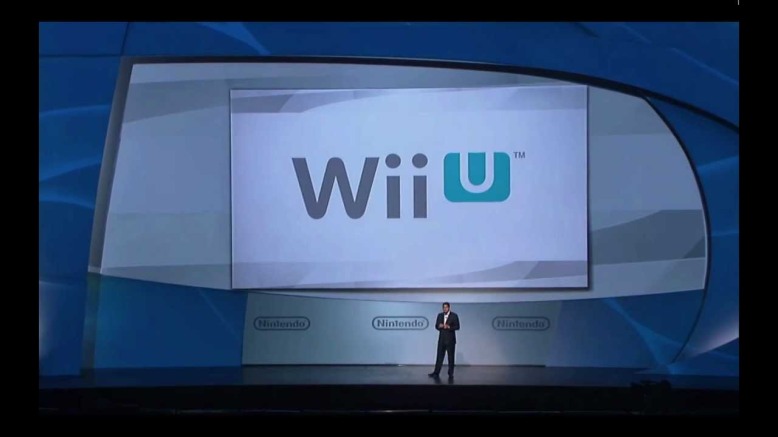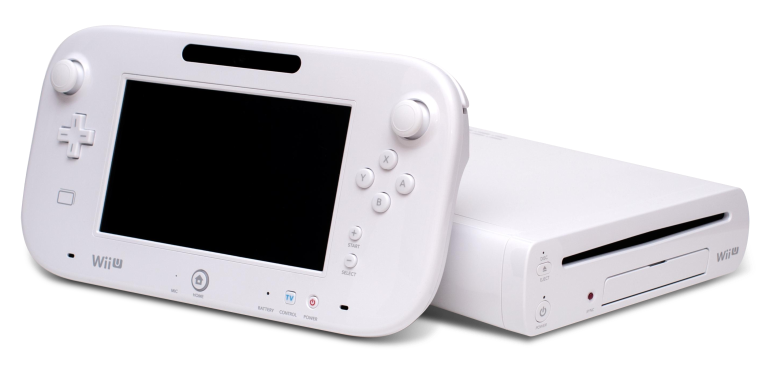I recently rediscovered my Wii U, having not played the console in more than a year and a half. As rumors about the NX spread and Nintendo begins to pivot away from its ill-fated console, I wanted to look back at its development, release and the games that will be lumped along with the company’s greatest failures.
Every sniff smelled of profits. Nintendo was basking in wealth, the product of a gamble on a wonky remote and an interactive bathroom scale. Wii, a name once lampooned for its hilarity and similarity to urine, was now a name universally synonymous with video games. It cut across barriers, fulfilling the prescient rationale Nintendo effused for the name in the first place. As their crown jewel neared the end of its life cycle, the company plotted what to name its next console. The decision: It was time to double down on their 100-million dollar-selling console named after a synonym for pee.
Nintendo never fell into the pit of the numerical console naming cycle, opting instead to focus first and foremost on their brand: Nintendo. Nobody says they own a “Microsoft Xbox” or “Sony Playstation”, and their respective companies market them as such. Nintendo always welcomes its gestating consoles into the world with that comforting Nintendo as a preface. Eventually their one-word moniker, GameCube or Wii becomes the standard shorthand, but they still eschewed their competitors penchant for counting up (or down in the Xbox One’s case) in favor of using unique names to identify their consoles. The Wii was a special case though, Nintendo had its first bona fide console runaway hit since the SNES.

The last time Nintendo takked on a moniker to an existing console name, it went from the wildly successful Nintendo Entertainment System to the Super Nintendo System. The adjective adjustment made sense, the SNES represented an incremental leap forward in graphics and presentation, without changing how games were presented drastically. Next, the jump to 3D represented a drastic change, necessitating the brand new Nintendo 64 name. Finally, the ill-fated Nintendo GameCube represented the (former) nadir of Nintendo’s console cycle. The Wii’s smashing success that generation was Nintendo’s first of that ilk in the home console space in 25 years.
For a company steeped in nostalgia, why wouldn’t they use a previous touchstone to inform their current business decision? They had just used the same tactic in the handheld space with the launch of the 3DS.
At E3 2012, Nintendo officially unveiled their new console, the Wii U. The rationale seems obvious, retaining the familiar “Wii” name but in a new console “tailor-made for you” as Reggie Fils-Aime, Nintendo of America’s President, said at the announcement.
“Wii U is kind of the natural progression in looking at what we did, how we changed gaming”
Their reasoning went beyond that unique marketing copy though, as Katsuya Eguchi, one of Nintendo’s lead designers, extrapolated to Edge, “There are actually several reasons for us wanting to make Wii U part of the Wii family, to make that connection. in hindsight, looking at Wii U and its features we realized that there were also things [with Wii] that we weren’t able to accomplish with that system, that we would have liked to see in it. Wii U is kind of the natural progression in looking at what we did, how we changed gaming.” He also mentioned the glut of Wii peripherals people already had at home, implying the Wii U would provide them another console to use them on. Its implication is their reticence to simply move on from the in-roads they’d made in reaching a diverse gaming audience.
The name sparked controversy and confusion, with many people unsure whether this was an entirely new console or simply an add-on for their Wii. For its part, Nintendo did little to help demystify these blurred lines, even keeping the Wii U console nearly out of sight during its initial announcement.
While users weren’t as vicious with the initial Wii announcement, there was similar confusion even among those who purchased the console as to why they chose the name Many cited options like “Wii HD” or “Wii 2”, or removing the Wii name entirely, as more apt choices to differentiate it from Nintendo’s previous offering.
Their trepidation wasn’t unfounded, as consumer questions and middling sales continued to haunt the console, with many continuing to cite the name as a factor, despite Nintendo’s insistence that it wasn’t.

A brief glance at Nintendo’s site includes a section on the Wii U titled, “What is Wii U?”. Expecting an answer or expanded discussion of the name, instead I was greeted first by simple text stating, “This is Wii U” with a picture of the console, gamepad, and Mario Kart on an HD television. It begins to load accompanying text and offers a tour of the console’s features, but the first impression was a perfect encapsulation of Nintendo’s approach to naming the console.
“This is Wii U”, presented plainly and with a slight whiff of arrogance and presumptuousness that consumers should just “get it”. Instead, the name stands as a microcosm of the Wii U’s failed lineage: stuck between generations amidst consumer confusion.
It’s no accident Wikipedia lists the name’s phonetic spelling as “WEE EW”.

Fantastic article. One of the biggest failures of the Wii U was its name. There have been so many people who I’ve recommended the system to, and they assumed it was just an extension of the Wii at first. I really hope that whenever the NX is unveiled, we get a proper name for Nintendo’s next home hardware.
LikeLike
Thanks Paul! Had the same thing happen when I mention the Wii U to people too. No idea how you stumbled on my blog but appreciate you reading my stuff!
LikeLike
It was a great article. The Wii U is a great little system that was brought down by many factors and some dumb decision making from Nintendo. So far, if the leaks are legit, it sounds like Nintendo is taking a step in the right direction with the NX, but we won’t know for sure until the reveal. >_<
That said, do you share these posts on any video game websites? I work over at Now Loading and this sort that makes for a great read. If you were open to the idea of posting your work on our site in addition to also having your blog, I’d be more than happy to help you get started. My e-mail and more info can be found on my page (o^.^)b
LikeLike
Oh cool, I just sent you an email about it.
Thanks!
Adam
LikeLike